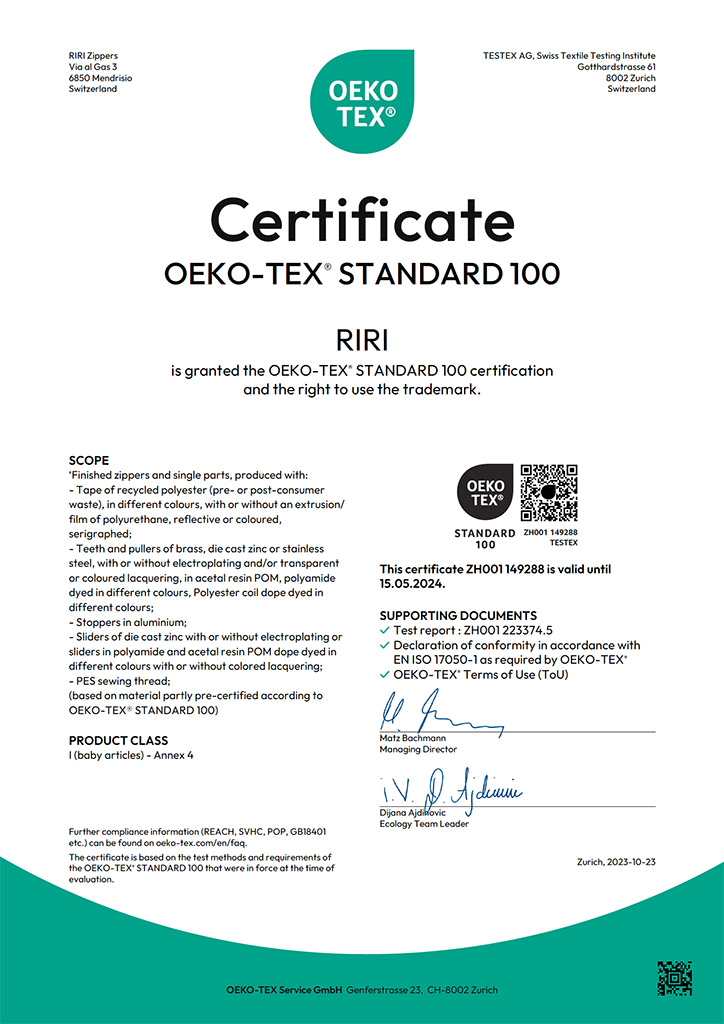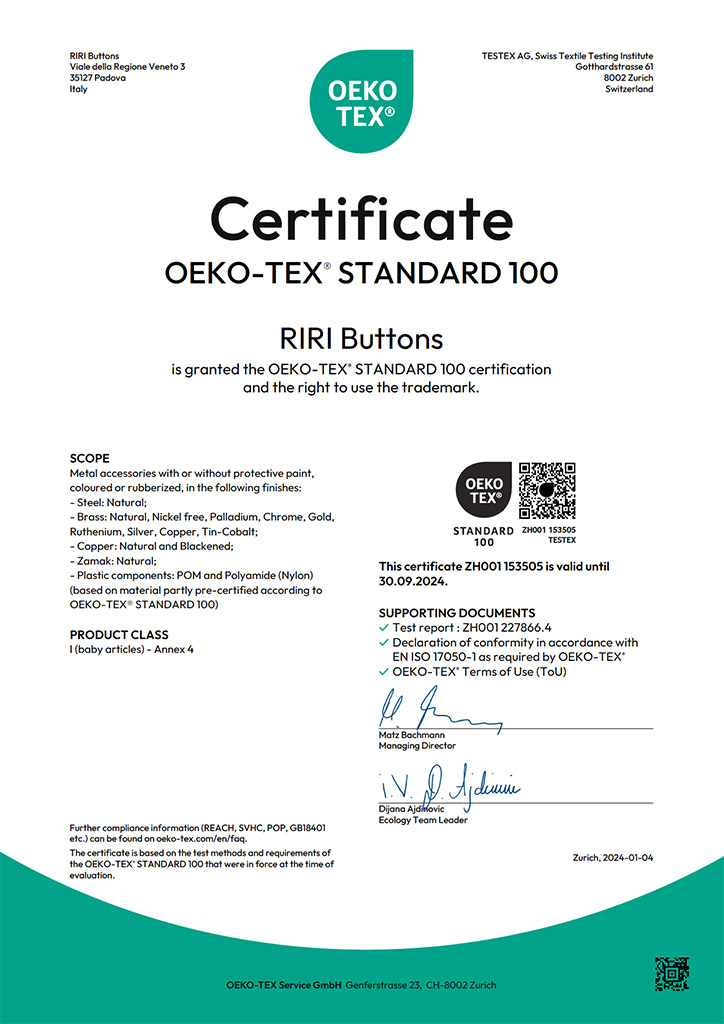

The international Association OEKO-TEX, founded in 1992 and with headquarters in Zurich, with its Standard 100 provides an independent control and certification system, harmonised at international level, for raw materials, semi-finished products and finished goods in the textile sector at all processing levels, as well as for any ancillary materials used.
The Association SATRA, founded in 1919 in the UK, is regarded as the most authoritative independent control body in the footwear and leatherwear sector, with a confirmed commitment to developing the quality, safety and performance of products and services.
“Quality Management Systems” is the international standard from which all management systems originate. It is a fundamental quality management system (QMS) as regards processes, products and services. It has been recently updated, in 2015, and – based on the concept of continuous improvement – it focuses on involving all stakeholders within the application scope of the system.
This standard is designed for organisation intending to choose a useful tool based on the definition of roles and responsibilities, as well as on standardised procedures which allow for planning of actions, their implementation, supporting the organisation at all levels – in-house and externally – by assessing its performance levels and making suggestions for continuous improvement.
Download pdf (Mendrisio) Download pdf (Padua)
SA8000 is a management model, focused on working conditions, meeting the needs of organizations that want to distinguish themselves through their commitment to sustainable development, particularly concerning social issues.
This international standard makes it possible to improve the conditions of employees, promote ethical and fair treatment and include international human rights conventions.
“Environmental Management Systems” is an international standard aimed at developing an effective environmental management system (EMS), designed for organisations which intend to: identify and control all significant environmental aspects of their business, products or services; comply with legal requirements, regulations and technical standards applicable to their business; continuously enhance their environmental performance levels.
“Occupational Health and Safety Assessment Series” is an international standard specifically intended for the management of health and safety (HSM) on the workplace; it has been designed for organisations whose aim is to implement formal procedures to protect health and prevent threats to staff safety.
Riri subscribed the ‘Policy on Minerals from Conflict Zones’ in 2018. Starting from March 2023, following the acquisition, Riri adopted the Oerlikon Policy, with the aim of discouraging the use of minerals whose marketing promotion could finance violent conflicts.